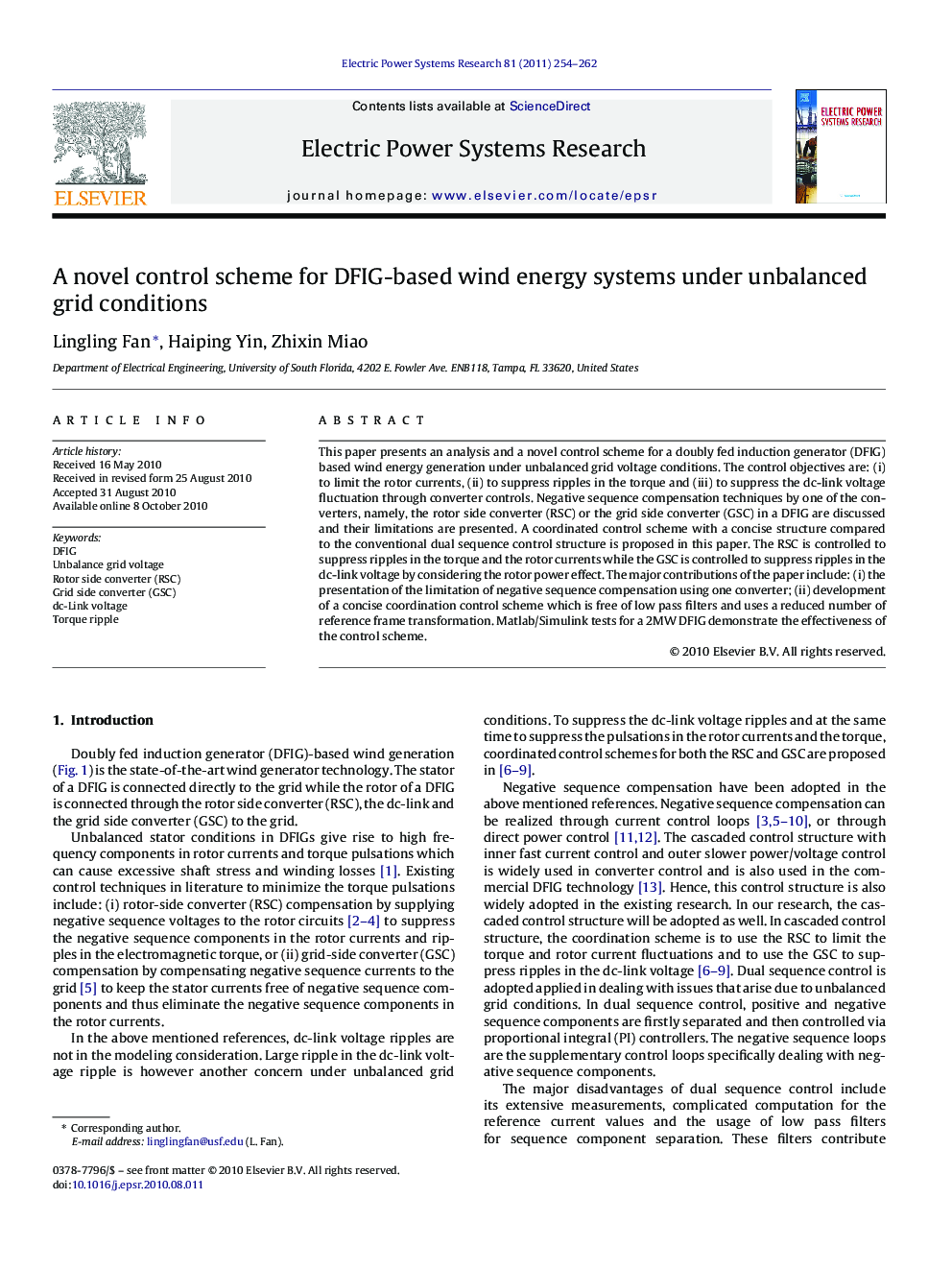| Article ID | Journal | Published Year | Pages | File Type |
|---|---|---|---|---|
| 10401477 | Electric Power Systems Research | 2011 | 9 Pages |
Abstract
This paper presents an analysis and a novel control scheme for a doubly fed induction generator (DFIG) based wind energy generation under unbalanced grid voltage conditions. The control objectives are: (i) to limit the rotor currents, (ii) to suppress ripples in the torque and (iii) to suppress the dc-link voltage fluctuation through converter controls. Negative sequence compensation techniques by one of the converters, namely, the rotor side converter (RSC) or the grid side converter (GSC) in a DFIG are discussed and their limitations are presented. A coordinated control scheme with a concise structure compared to the conventional dual sequence control structure is proposed in this paper. The RSC is controlled to suppress ripples in the torque and the rotor currents while the GSC is controlled to suppress ripples in the dc-link voltage by considering the rotor power effect. The major contributions of the paper include: (i) the presentation of the limitation of negative sequence compensation using one converter; (ii) development of a concise coordination control scheme which is free of low pass filters and uses a reduced number of reference frame transformation. Matlab/Simulink tests for a 2MW DFIG demonstrate the effectiveness of the control scheme.
Keywords
Related Topics
Physical Sciences and Engineering
Energy
Energy Engineering and Power Technology
Authors
Lingling Fan, Haiping Yin, Zhixin Miao,
